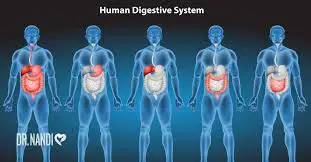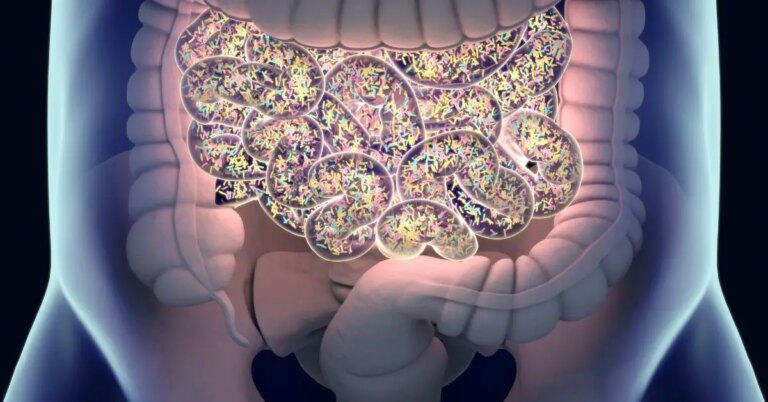When we talk about cholesterol and heart disease, we often point the finger at diet, genetics, and lifestyle. But a newly identified culprit may have been hiding in plain sight: an enzyme called IDO1. According to a groundbreaking study from the University of Texas at Arlington, this enzyme doesn’t just show up during inflammation—it actively throws the body’s cholesterol-processing system into disarray.
IDO1: The Hidden Saboteur in Cholesterol Regulation
Inflammation is your body’s defense mechanism, designed to heal injuries and fight off infections. But when inflammation becomes chronic, it can quietly chip away at your health. In conditions like diabetes, heart disease, and even cancer, chronic inflammation becomes more than a symptom—it’s a driver.
Chronic inflammation is implicated in a range of everyday health problems. For example, in type 2 diabetes, it can impair insulin signaling and worsen blood sugar control. In heart disease, it contributes to the buildup of arterial plaques. Even in neurodegenerative conditions like Alzheimer’s, chronic inflammation is believed to damage brain cells and accelerate cognitive decline. This makes understanding the triggers and molecular agents behind inflammation even more urgent.
Scientists have now found that the enzyme IDO1 may be one of the main conductors of this dysfunction. When inflammation occurs, IDO1 activates and produces a compound called kynurenine. This molecule prevents macrophages—the immune system’s cleanup crew—from absorbing cholesterol properly. The result? A dangerous buildup of cholesterol, which can contribute to arterial plaques and long-term cardiovascular damage.
Why Macrophages Matter for Your Heart
Macrophages do more than fend off infections; they also play a crucial role in removing excess cholesterol from your bloodstream. Think of them as cellular janitors that keep your blood vessels clean. But when IDO1 is active, it effectively “flips the off switch,” and these cells lose their ability to clear cholesterol.
In the UT Arlington study, researchers found that by blocking IDO1, macrophages could resume their normal function. This suggests that inhibiting IDO1 could help restore cholesterol balance and lower disease risk—without relying solely on statins or dietary changes.
The Double Trouble of Nitric Oxide Synthase
Nitric oxide synthase (NOS) is an enzyme best known for its role in producing nitric oxide, a molecule that helps dilate blood vessels, regulate blood pressure, and support immune defense. Under normal conditions, NOS contributes to cardiovascular and cellular health. However, when the body is under inflammatory stress, its activity can become dysregulated.
In the context of chronic inflammation, the UT Arlington research team found that NOS appears to amplify the effects of IDO1, further disrupting how macrophages handle cholesterol. Instead of helping the body, NOS in this case acts like an accelerant, intensifying the metabolic chaos.
Targeting both enzymes simultaneously could represent a new frontier in treating inflammation-related illnesses. This dual inhibition approach could improve outcomes for millions of people who are managing heart disease, diabetes, and other chronic conditions rooted in inflammation.
A Glimpse Into the Future of Inflammation Therapy
Current treatments for high cholesterol often focus on managing the symptoms rather than addressing the root causes. What this research shows is that tackling inflammation at a molecular level could revolutionize how we approach prevention and treatment.
While further clinical studies are needed, the discovery of IDO1’s role opens doors for new anti-inflammatory drugs designed to preserve cholesterol processing and immune balance. These future therapies could help protect not only your heart, but also your brain, metabolic function, and even cancer defenses.
My Personal RX on Controlling Inflammation Naturally
Understanding the science behind inflammation empowers you to make smarter choices every day. While researchers explore pharmaceutical ways to inhibit enzymes like IDO1, you can support your body’s natural defenses through diet, lifestyle, and targeted supplements.
Here are my recommendations to help you reduce chronic inflammation and protect your heart:
- Support Your Gut-Brain Axis: Chronic inflammation often begins in the gut. A daily dose of MindBiotic, a targeted blend of probiotics and adaptogens, helps regulate immune response and reduce gut-derived inflammation.
- Focus on Anti-Inflammatory Meals: Meals high in sugar and refined carbs can fuel inflammation. My Mindful Meals program offers nutrient-dense recipes that support metabolic balance and cardiovascular health.
- Eat More Fiber: Soluble fiber binds to cholesterol in the digestive tract, helping remove it before it enters the bloodstream. Include oats, legumes, and chia seeds in your meals.
- Limit Processed Meats and Fats: These can trigger inflammatory pathways and worsen cholesterol issues. Choose lean proteins like fish, legumes, and tofu instead.
- Exercise Regularly: Physical activity improves circulation, reduces inflammatory markers, and boosts cholesterol metabolism. Aim for 150 minutes of moderate exercise each week.
- Sleep Matters: Poor sleep increases inflammation. Prioritize 7-9 hours of quality rest per night to allow your body to recover.
- Hydrate Well: Dehydration stresses the body and worsens inflammation. Drink at least 8 cups of water daily.
- Practice Stress Reduction: Chronic stress can activate inflammatory enzymes. Try meditation, yoga, or breathing techniques to keep stress in check.
- Cut Back on Alcohol: Excess alcohol disrupts liver function and inflammation regulation. Stick to moderate or no intake.
- Stay Informed: Science evolves quickly. Keep learning about how inflammation affects your body so you can adapt your health strategies accordingly.
Source:
Chini, A., Guha, P., Rishi, A., Bhat, N., Covarrubias, A., Martinez, V., Devejian, L., Nguyen, B. N., & Mandal, S. S. (2025). HDLR-SR-BI Expression and Cholesterol Uptake are Regulated via Indoleamine-2,3-dioxygenase 1 in Macrophages under Inflammation. Langmuir. https://doi.org/10.1021/acs.langmuir.4c03005











 Subscribe to Ask Dr. Nandi YouTube Channel
Subscribe to Ask Dr. Nandi YouTube Channel









